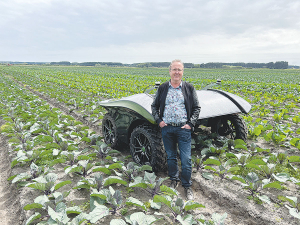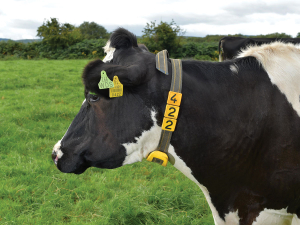At the recent Agricultural Robotics Forum in California, Palmerston North-based agritech company SeedSpider has launched its AI-augmented robotic weeder WeedSpider into the North American market.
With research showing that demand for food is set to increase by 70% in the next 30 years – due to population growth – agronomic solutions using robotics that are able to work 24 hoursa- day without requiring any manual labour will be more cost-effective than traditional methods.
WeedSpider’s technology can identify and eliminate weeds in a variety of crops, providing a solution to the severe labour shortage problems facing many commercial vegetable growers. The technology also helps reduce the reliance on weed sprays, making growing more sustainable and healthier for consumers.
SeedSpider founder Don Sandbrook says its North American customers already know and trust the company’s seeding technology, which is used to plant around 80% of salad greens and baby carrots in the US market.
“With a customer base focused on improving productivity, it was an obvious step for us to expand from seeding to weeding,” he told Hort News. “Our fully autonomous weeding robot offers growers the ability to increase yields and reduce costs. We are confident that this revolutionary technology will change the way we farm and provide much-needed relief to the industry.” Sandbrook says with global demand for food increasing yearon- year, innovative solutions like the Weed and SeedSpider are needed to increase food production, without impacting the health of the planet.
The company’s development goes back to 1990, setting out to help address the increasing challenges of the agricultural sector across the world and developing SeedSpider. Today, the business is taking that expertise to the world of weed management. Now – after five years of development – it has produced an autonomous robot that traverses crop rows, while detecting and mechanically eliminating weeds.
The technology is capable of monitoring and managing the entire weeding and thinning process for growers. This provides detailed insights into weed density, plant health and yield analysis through the life cycle of their crops.
Sandbrook says the WeedSpider targets and removes weeds only – rather than indiscriminately hoeing everything – providing a more sustainable and environmentally friendly solution.
In order to drives sales for WeedSpider and provide after sales support, SeedSpider has set up a base in California where, along with Arizona, much of the food grown in the US is produced.


















